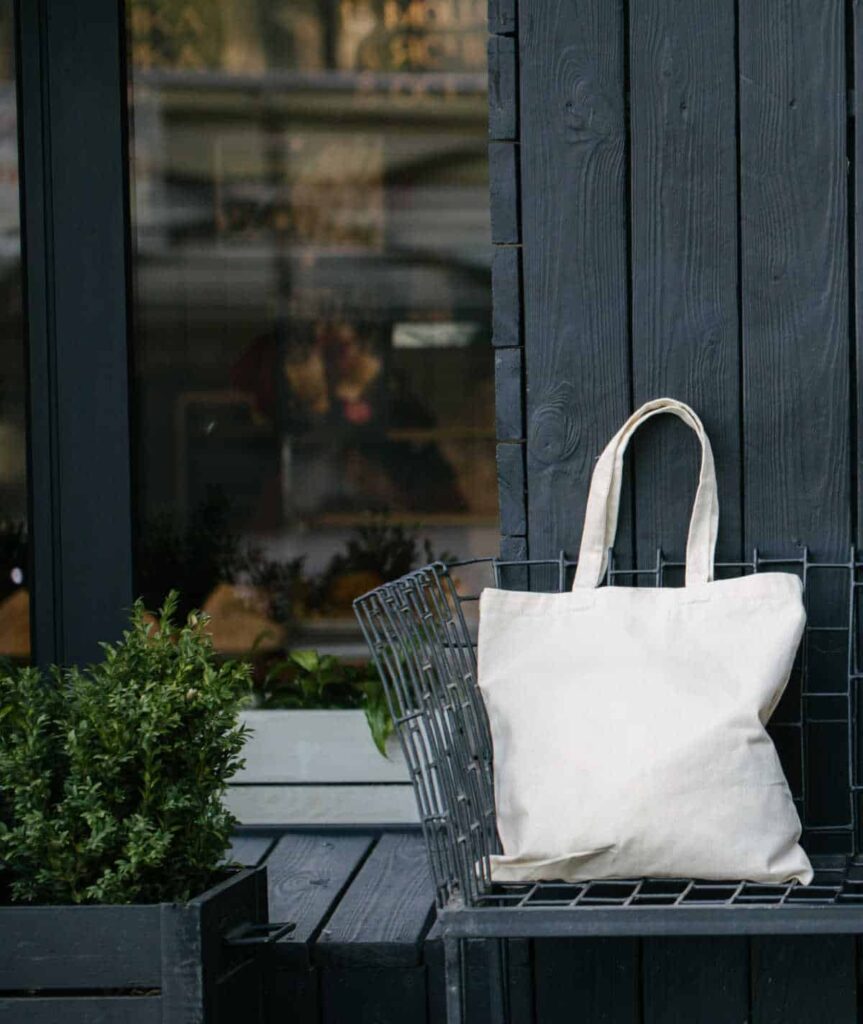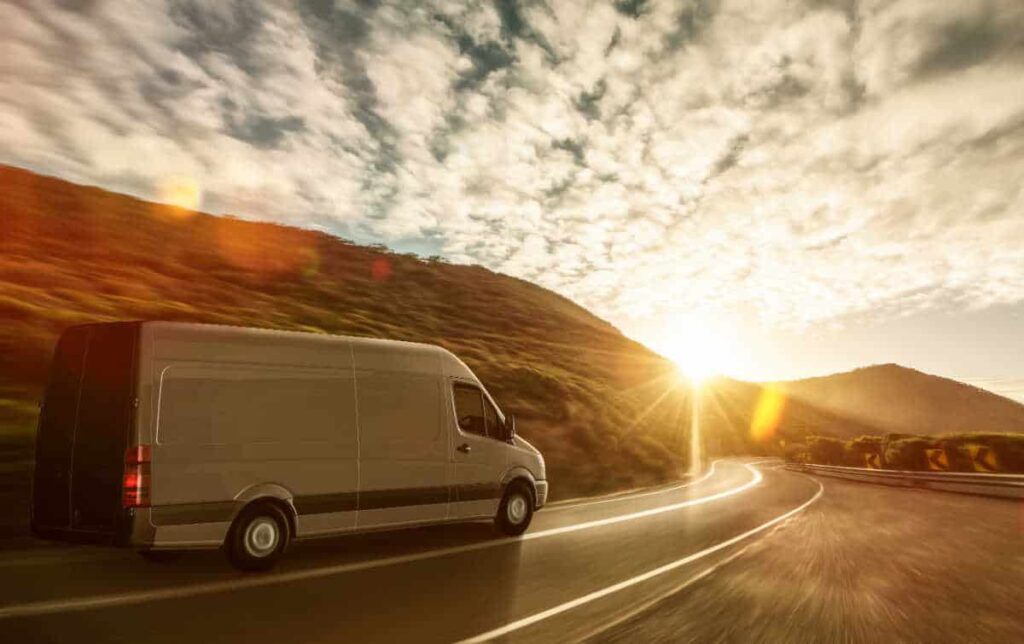Best Sustainable Camping Gear & Tips For Eco-Friendly Campers
To support the running costs of Moral Fibres, this post may contain affiliate links. This means Moral Fibres may earn a small commission, at no extra cost to readers, on items purchased through these links.
Got a camping trip planned for 2023? Let’s chat about eco-friendly sustainable camping gear and tips to help minimise your impact on the environment.
Whether you are planning on a camping trip close to home or you are planning on a rail trip around Europe with a tent and sleeping bag in tow, it’s likely that the boom that we saw in camping in 2020 will continue well into 2023 and beyond.
The problem is that 2020 saw a rapid increase in environmental problems related to camping. So, as well as having a look at the best sustainable camping gear out there, as well as some tips for minimising your impact on the environment when you do camp.
The Best Sustainable Camping Gear
The most sustainable camping gear is always the stuff you already own or can borrow from a friend, or can buy secondhand. Ask your friends if you can borrow their gear, and if not, try Gumtree, Facebook Marketplace, or eBay. You might come across some real bargains.
If you can’t find what you want secondhand, then here are some suggestions for sustainable camping gear that you may want to invest in. I’ll try not to make it too in-tents…! :)
The Most Sustainable Tents
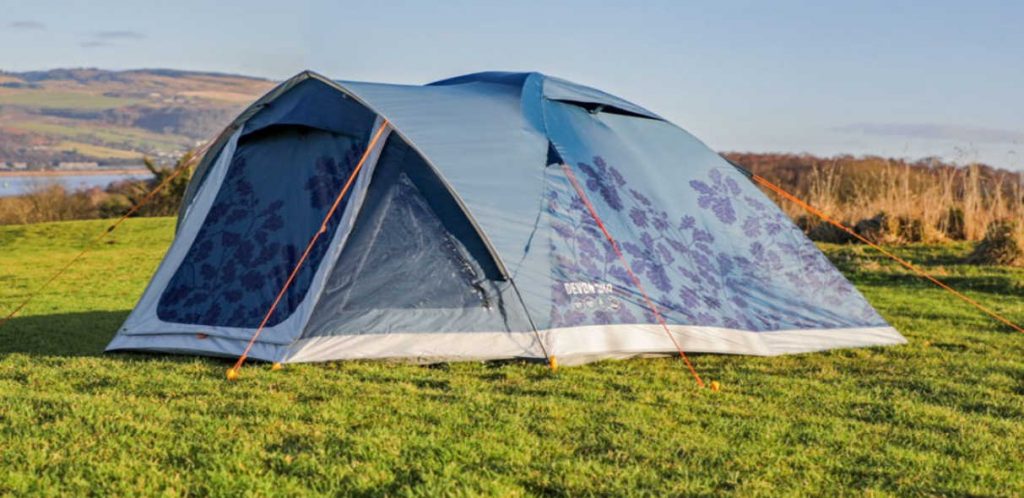
No camping trip is complete without a tent, as each trip starts and ends with a good-quality tent that can protect you from the elements. That’s why finding the right tent is a must before you head off on any adventure, be it wild camping, glamping, or a campsite holiday.
Here are the most sustainable tent options for your camping trip:
Rent A Tent
If you can’t borrow a tent, or find one secondhand, then another super sustainable option is to rent a tent.
Many companies allow you to hire one of their tents. Simply tell them when you are going camping, and how long your trip will be, and they will send out a tent directly to your door. They will even arrange the collection of the tent for when you get home. Other companies may allow you to pick up and drop off their tent.
Tent hire organisations to try include:
Refurbished Tents
If you’d rather buy your own tent, then try Camping Recycled. This is an initiative set up by Vango to sell tents, caravans and vehicle awnings that function as intended but can’t be sold through their retail partners. These include samples, demo kits, and refurbished products.
This helps divert stock from landfills and has the added bonus of being a bit kinder on your pocket too. Your consumer rights aren’t affected – unless otherwise stated, Vango accepts returns within 28 days of delivery.
Tents Made From Recycled Materials
Vango has also introduced a National Trust Collection, which is a collaboration between Vango and the National Trust. Their collection of tents in this range is made from Sentinel Eco™ fabric – a fabric made from recycled plastic bottles which come from waterways, streets, and landfills.
I’d like to see all of Vango’s tents being made from this material, as a single eco range does not make for a sustainable brand, but it’s a solid start.
Plastic-Free Tents
The investment eco option is a canvas bell tent. Plastic-free, 100% cotton canvas bell tents have better breathability than conventional tents, and, being stronger, have a longer lifespan. However, you have to be very careful with canvas bell tents. You should never put the tent away damp as mould and mildew can take hold and damage and rot the tent.
I’ve never bought a bell tent so don’t have any recommendations for suppliers, so it’s best to ask around, as these can be pricey investments.
The Best Eco-Friendly Sleeping Bags
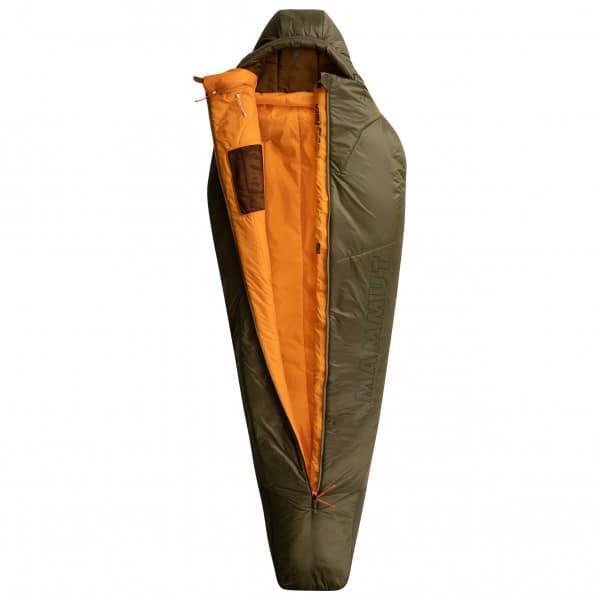
There are a few sustainable sleeping bags on the market to add to your sustainable camping gear kit bag. I’ve specifically looked for sleeping bags made from recycled materials that are PFC-free.
PFC stands for per- and poly-fluorinated chemicals, that are used to weatherproof outdoor gear. This sounds innocuous, however, these chemicals accumulate in the environment, and for some PFCs there is evidence that they cause harm to both the hormonal and reproductive systems in both humans and animals, as well as being carcinogenic.
Greenpeace has written more on the issues of PFCs if you wish to find out more.
Exped Litesyn Sleeping Bag
The Mammut Perform Sleeping Bag (£178.46), pictured above, is perfect for camping trips from early spring to late autumn, with its -7°C comfort rating. This one is a good sustainable choice for any camper. Here’s why
- It’s made using recycled materials.
- The fabric is certified as bluesign approved. This is an independent verification that certifies that in each step in the textile supply chain only approved chemicals, processes, materials, and products are used. This means these products are safe for the environment, workers and customers.
- It contains Fair Wear-certified fabrics This means that Mammut is a Fair Wear member and is actively working to improve labour conditions for people in the textiles industry. In fact, Mammut was the first outdoor brand to join the Fair Wear Foundation.
- It’s PFC-free.
Marmot Idlewild Sleeping Bag
The RAB Solar Eco 2 Sleeping Bag (£149.95) is made from recycled polyester and is filled with a recycled synthetic fibre filling. Reassuringly, it’s also PFC-free. This one is suitable for summer camping trips – with a comfort rating of 4°C – so do note it has a shorter usage window than others.
Nordisk Mummy Sleeping Bag
The Nordisk Mummy Sleeping Bag (£193.45) is a three-season sleeping bag, with a -6°C comfort rating. It’s PFC-free and made from recycled polyester.
The Ethical Rucksacks
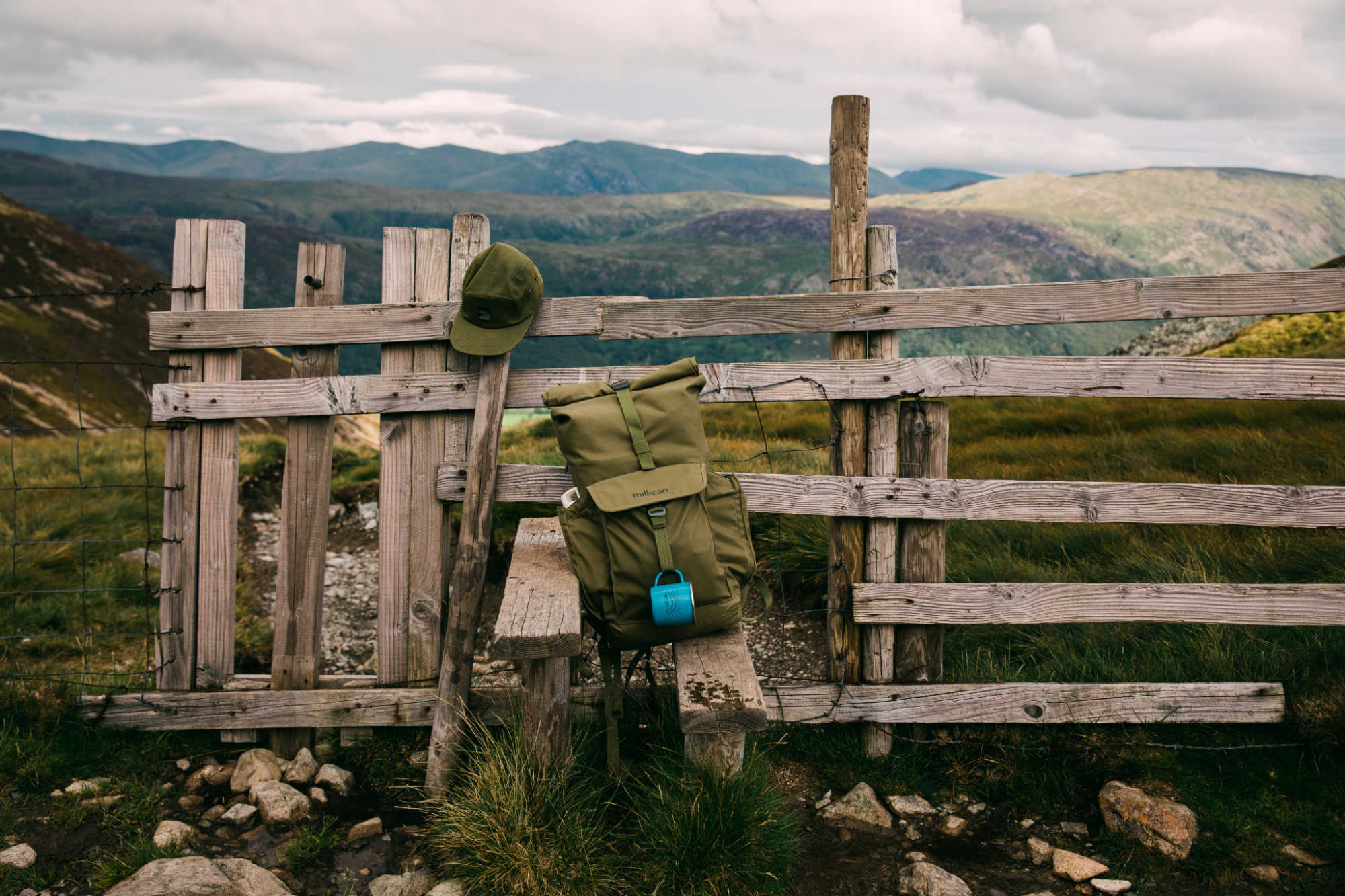
Of course, you need somewhere to transport your clothes and camping gear.
In terms of ethical rucksacks, I really rate Millican rucksacks. The 25L Smith The Roll Pack is produced from 100% recycled polyester yarn made from post-consumer waste, on both the outer and lining fabric. This makes it a great sustainable choice when upgrading your camping gear.
What’s more, even the hardware is made from infinitely recyclable aluminum, rather than plastic. A repair service is also offered. This ensures that your rucksack stays in tip-top condition year after year, camping trip after camping trip.
If you are looking for something smaller to take on hiking trips or other everyday adventures, check out my post on ethical backpacks for more ideas.
Environmentally Friendly Camping Stoves & Cooking
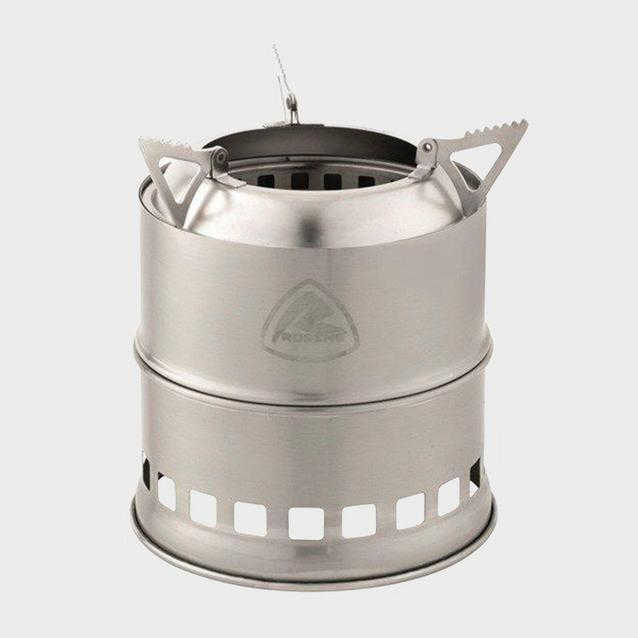
A sustainable alternative to a gas-powered fossil-fuel camping stove is a wood-fired camping stove. I came across this Biolite Camping Stove (£134.95) on Wildbournds that is powered by wood. What’s more, the heat generated by the stove also charges up your mobile phone. SO handy!
Alternatively, if you want a decidedly more budget-friendly wood-burning camping stove for your sustainable camping gear kit bag, then try this Robens Wood Burner Camping Stove (£33.11) (pictured above), from Alpinetrek. It simply cooks your food without fossil fuels, which is all you could possibly need from a camping stove.
To light your stove, say goodbye to plastic fossil fuel-powered lighters or soggy matches with a Fire Stick, such as this Wildo one (£11.16 from Alpinetrek). This is a fool-proof and fun way of lighting a stove Simply strike the striker off the flint for sparks to light your stove with. I bought my partner one a few years ago, and he loves it.
Sustainable Camping Tips
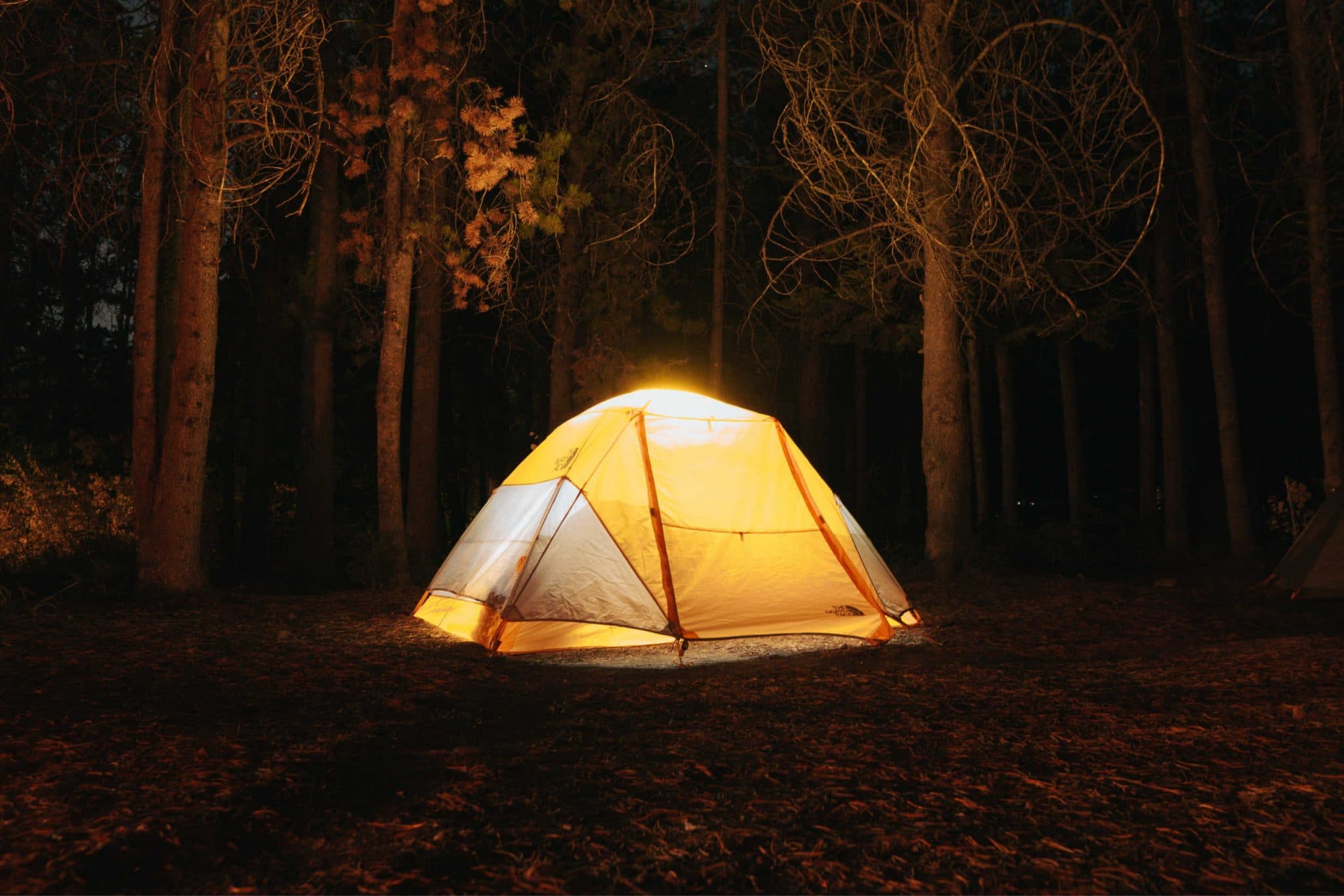
Even if your camping gear isn’t sustainable, it’s arguably more important that you act like a sustainable camper. Having an understanding of the Countryside Code is key. However here are a few more environmentally friendly camping tips to consider.
Consider Where You Camp
Official campgrounds are the best places to camp. This is because they are set up to cater for campers, and often have bathroom facilities and facilities for cooking, washing, and refuse collection.
Wild camping – where you camp on public or private land without permission – is allowed in most places. However, the rise of irresponsible wild campers means wild camping is gaining a bad reputation.
And not only that – many remote communities don’t have the infrastructure to deal with an influx of waste caused by tourists. Consider if the area you are camping in can support wild camping before rocking up with your tent.
Food
For short trips, it’s a great idea to bring your own pre-prepared meals that you can warm up on a camping stove.
Food that travels and reheats well includes soup and pasta. Alternatively, you can decant shop-bought food into reusable containers. This means that should there be no bins where you are camping, or no recycling facilities, then you won’t leave any waste.
If you do need to take food with you, do consider its disposal. If your campsite doesn’t offer composting, then for short trips, try to bring your food waste home with you (in a sealed jar, for example).
And if the campsite doesn’t offer recycling facilities, again try to bring that home with you rather than putting it into landfill. And if where you are camping has no bin (if you are wild camping, for example), then be sure to bring all of your waste home with you.
Cooking
Be mindful of where you are cooking. As well as being not great for the environment, disposable barbeques can cause fires. It’s therefore important to take extra care not to cause a fire when you are cooking.
The best advice is to cook using a stove, rather than lighting an open fire or a disposable barbeque. If you do need to light a fire, then the Scottish Outdoor Access Code offers good advice. It says:
“Keep it small, under control, and supervised – fires that get out of control can cause major damage, for which you might be liable. Never light an open fire during prolonged dry periods or in areas such as forests, woods, farmland, on peaty ground, near buildings, or in cultural heritage sites where damage can be easily caused. Heed all advice at times of high risk. Remove all traces of an open fire before you leave”.
Using designated barbeque areas is also important, as it keeping a bucket of water nearby at all times.
How To Do The Toilet Outdoors Responsibly
If you are wild camping, then it’s important to be a considerate toilet goer. The most sustainable advice is to know in advance the location of public toilets, or establishments that may let you use their bathroom facilities.
However, even the best-laid plans can see us caught short. If you’re outdoors with no access to toilets, then there is some general advice that you should follow.
Weeing Outdoors
If you need to urinate, you should do so at least 30 metres from open water or rivers and streams. Always bag and bin toilet roll – never leave it on the ground, as it takes a surprisingly long time to decompose.
Pooping Outdoors
If you need to poo, you have two options. Bag it and bin it, as you would do with dog poo. That means you should be prepared to carry the bag until you find a suitable bin to dispose of it in. Carrying some compostable dog poo bags (from Ethical Superstore) in with your sustainable camping gear kit is, therefore, a really good idea in this circumstance, even if you don’t have a dog.
If you don’t have a bag to hand, then the Scottish Outdoor Access Code says you should do so as far away as possible from buildings, from open water or rivers and streams, and from any farm animals.
Once you are done, you should bury the faeces in a shallow hole and replace the turf. It’s good practice to carry a small trowel with you if you are wild camping for this purpose. I think this is good advice to follow, whether you are camping in Scotland or elsewhere in the UK.
Don’t bury toilet paper, wet wipes, or period products. These should be bagged and binned when you find appropriate facilities.
Leave No Trace
Finally, when it’s time to come home, then bring home everything at the end of your trip. Even if your tent breaks or there are no bins, or the bins are overflowing, it’s no excuse to dump rubbish. Take it all home, and dispose of it in your own bin.
Any more sustainable camping gear recommendations or tips for being a responsible camper? Do share! You can also check out my posts on the best ethical outdoor gear and ethical coats and jackets in case of rain!
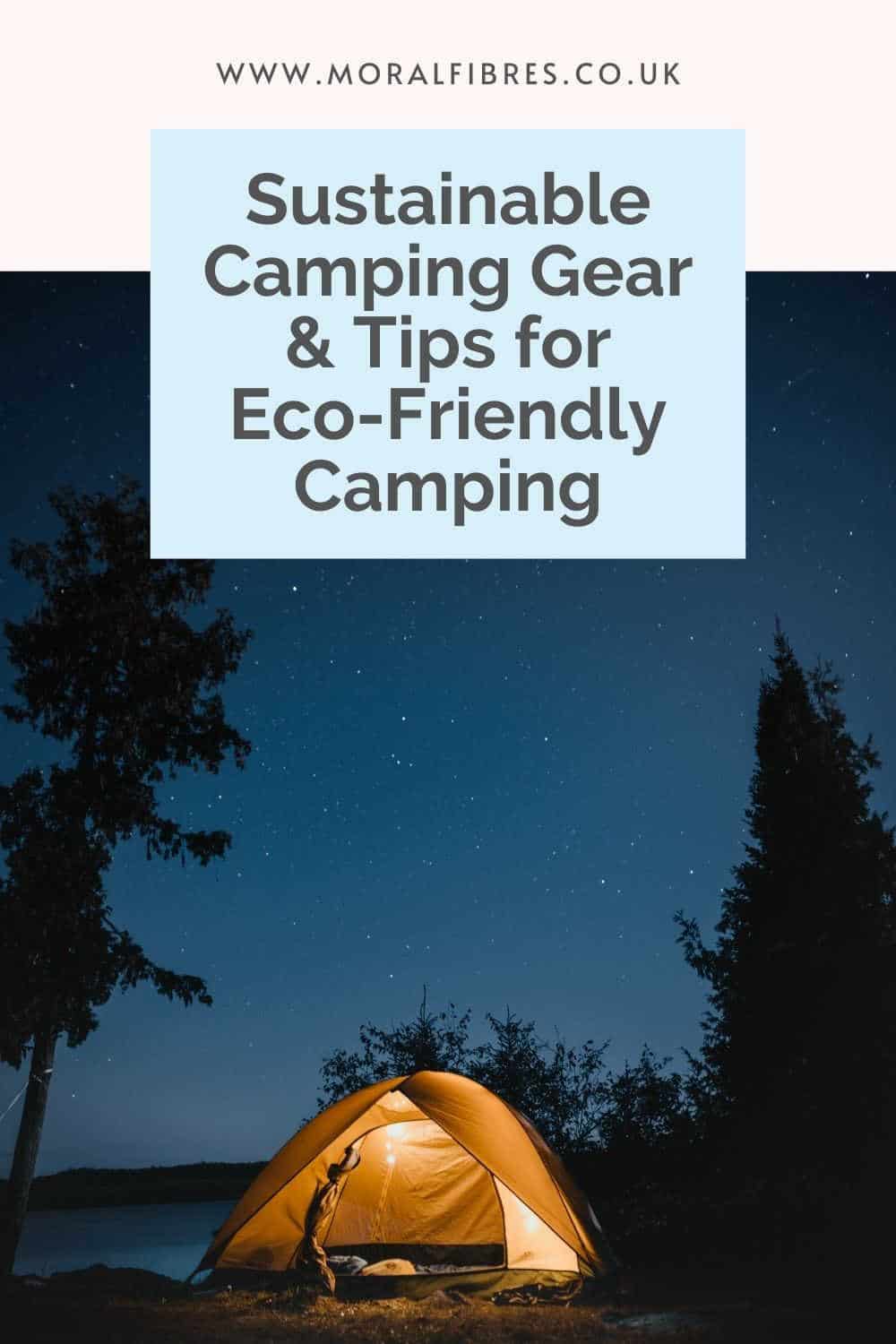
Found this post useful? Please consider buying me a virtual coffee to help support the site’s running costs.


